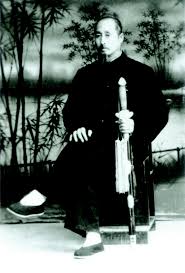The first time I met my Shifu, he greeted me with kind eyes and a warm smile. I was given a senior student to learn the horse stance and straight punch. Then, I was left to my own devices and practically ignored for almost a week.
The Work Began to Pay Off
There were two training sessions a day, one in the morning and one at night, each one about two hours. I didn’t really know why I was ignored like this, but I decided just to keep drilling these two moves in the corner.
Finally, Zhou Shifu came up to me and said: “Wow, you really train hard!” From there, he began giving me intense and detailed instruction.
Modern China is following the west, becoming more consumer-minded. In contrast, the traditional culture is very different. Martial arts is an apprenticeship system; it requires a stable student-teacher relationship based on Confucian values. Teachers are conservative and will test the student to see if they “have what it takes” to study with them. This, I learned, was why I was left in the corner.
Once this relationship of trust has been established, the teacher has the responsibility to train the student in their martial art and guide them in life, too. A ceremony, called Bai Shi, takes place where the student kneels before the teacher and offers them tea in front of a group of witnesses. It’s akin to a marriage. The student is regarded as “inner door” and will go on to learn the system in its entirety, as well as listed in records as a formal inheritor of the system.
The Real Work Began
For me, this ceremony took place after three years of training the basics and intermediate stages of our style. I ask to Bai Shi several times before my teacher accepted.
Afterward, I learned the more advanced material, and I felt my relationship change with my teacher change. He began to invite to his home for dinner often and treated me like a member of his own family. Strangely enough, training became much more informal. Prior, I would join in the regular class and be treated quite strict.
After the Bai Shi ceremony, I would go to Zhou Shifu’s home and train privately. These sessions had no fixed order; it was more like two guys training together than a teacher instructing a student. We would train until it just naturally stopped, at which time he usually took me inside for tea or beer.
However, with the modernization of China, society is changing at a rapid pace, and so is the world of martial arts. As China moves more toward a consumer culture, styles like Taekwondo, with its clear-cut ranking system and standardized teaching, and western boxing, with its intense workouts, are becoming more popular than Kung Fu, which takes time and patience to develop and progress is gradual and non-quantifiable.
As a result, traditionally minded teachers like mine are becoming harder to find, and others are opening commercial schools with watered down versions of the art.

